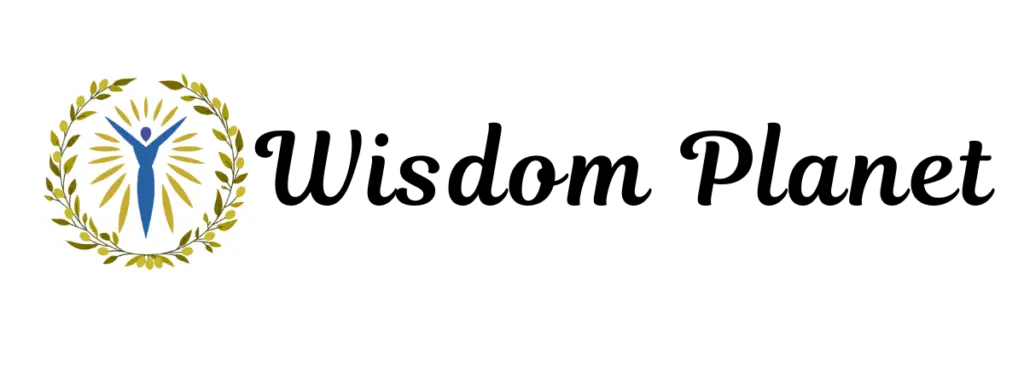Ethics in the Workplace: Accelerate Your Career Growth

Ethics in the Workplace
How to Accelerate Your Career Growth
I am privileged to share some insights on a very important aspect of your career—workplace ethics. After more than 50 years in the field, I’ve learned that ethics are not rules but the foundation of trust, respect, and collaboration in any organisation.
What Are Workplace Ethics?
To begin with, let me ask a simple question: What do we mean by ethics? Ethics are doing what’s right, fair, honest, and legal. They are the values that ought to shape our work behaviour—how we treat our peers, make decisions, and deliver results. All choices are declarations about what we stand for.
Ethics are bigger than company policies. Even though organisations issue recommendations, you and I are ultimately responsible for making ethical decisions. And there’s not a workplace that doesn’t benefit from all of us bringing honesty, fairness, and accountability to the party.

Why Are Ethics Important?
So why would we care about ethics anyway? The answer is simple:
Trust: Ethical behaviour fosters trust within teams, between leaders, and with clients.
Reputation: When a company is known for doing the right thing, good people want to work for it, and customers do business with it.
Team Spirit: Having a respectful and inclusive environment enhances collaboration and productivity.
Ethical workplaces aren’t just good for the company; they’re good for you. They create a space where you feel valued, where your hard work is appreciated, and where you can grow without fear.
Your Role in Upholding Ethics
Now, what does this mean for you as professionals starting your careers? Let me break it down:
- Honesty: Always be truthful in your actions and communication.
- Fairness: Treat everyone equally, without favouritism or bias.
- Accountability: Own your mistakes. Learn from them and take corrective actions.
- Respect: Value the diversity and contributions of your colleagues.
Each of you has a role in fostering an ethical culture. Whether you are a team member or a future leader, your actions set the tone for others.
Simple Steps for Ethical Decisions
Ethics isn’t always about big decisions; it’s about your small, everyday choices. Here are a few questions to guide you:
- Is this decision legal?
- Does it align with company policies?
- Would I feel good if this action became public?
- Would I be okay if someone did the same to me?
If the answer to any of these questions is “no,” take a step back and reconsider.

Common Ethical Challenges
In the workplace, you might face challenges such as:
- Pressure to meet deadlines that may tempt you to cut corners.
- Conflicts of interest where personal gains clash with professional responsibilities.
- Situations, where you see others behaving unethically due to a lack of Awareness or diverse ethical norms, necessitate training and communication to unify standards.
In these moments, it’s essential to stay true to your values. Speak up when necessary, and seek guidance if you’re unsure.
Ethical Responsibilities Across Roles
I would also like to address the specific roles of employees, team leaders, and project managers when it comes to ethical responsibilities.
Employees
- Adherence to Policies: Understanding and following company guidelines ensures consistency and accountability.
- Integrity and Accountability: Transparency in dealings, owning mistakes, and working towards corrective measures strengthen organisational trust.
- Respect in the Workplace: Promoting inclusivity and valuing diversity fosters a dynamic and innovative environment.
- Confidentiality: Protecting sensitive data and adhering to security protocols maintain trust and protect organisational assets.

Team Leaders
- Leading by Example: Demonstrating integrity, fairness, and accountability inspires teams to emulate ethical behaviour.
- Creating a Culture of Openness: Encouraging transparency allows employees to voice concerns and share feedback without fear.
- Managing Conflicts Ethically: Addressing disputes impartially and seeking win-win solutions promotes team harmony.
- Ensuring Equal Opportunities: Avoiding favouritism and recognising merit builds trust and motivates employees.
Project Managers
- Ethical Decision-Making: Balancing business goals with ethical considerations enhances trust and sustainability.
- Managing Ethical Risks: Identifying and mitigating risks, such as conflicts of interest or data privacy issues, ensures project integrity.
- Transparent Stakeholder Management: Honest communication with clients, vendors, and team members strengthens credibility.
- Accountability for Outcomes: Owning successes and failures fosters trust and continuous improvement.

Creating an Ethical Team Culture
- Shared Ethical Vision: Aligning team goals with ethical principles creates unity and reinforces organisational values.
- Respect and Collaboration: Mutual respect and teamwork promote a supportive and productive work environment.
- Ethical Communication: Prioritizing honesty, clarity, and respect while avoiding gossip builds transparency and trust.
- Inclusive Decision-Making: Incorporating diverse perspectives ensures well-rounded and ethical choices.
Strategies for Enhancing Workplace Ethics
- Training and Development: Conducting workshops reinforces ethical principles and guides behaviour.
- Establishing Clear Policies: Comprehensive ethical guidelines provide a consistent framework for decision-making.
- Recognition and Rewards: Celebrating ethical behaviour encourages its adoption across the organisation.
- Ethics Committees: Dedicated teams oversee compliance and address concerns, fostering accountability.

Dos and Don’ts of Workplace Etiquette
Let me also share some practical tips for day-to-day professional behaviour:
The Don’ts of Workplace Etiquette
Don’t “Reply All” to Emails
Avoid overusing the “Reply All” function unless it is necessary for all recipients to see your response. Misusing this feature can clutter inboxes, expose confidential information, and create an unprofessional impression.
Avoid Personal Matters at Your Desk
Conduct private phone calls or discussions in designated areas. Personal conversations at your desk can distract others and damage your professional image.
Keep Emotions Out of the Office
Leave personal emotions at the door. If issues affect your focus, address them outside work or seek appropriate support from HR or management.
Don’t Gossip
Avoid spreading rumours or gossiping about colleagues, supervisors, or the organisation. Gossip erodes trust and undermines team cohesion.
Don’t Use Unnecessary Emoticons in Professional Emails
Unless explicitly allowed, maintain a formal tone in work emails. Overuse of emoticons or informal language can detract from your credibility.
Don’t Argue with Your Supervisor
Maintain professionalism during disagreements. Present your concerns tactfully and constructively without being confrontational.
Avoid Overindulgence at Work Events
At workplace events, enjoy yourself responsibly. Overindulging in alcohol or behaving unprofessionally can damage your reputation.
Don’t Avoid Taking Calculated Risks
While avoiding recklessness, embrace opportunities to step outside your comfort zone. Professional growth often requires calculated risks.
Don’t Be Unprepared
Ensure you are prepared for unexpected situations by keeping essentials such as an extra pair of shoes or an umbrella handy.

The Do’s of Workplace Etiquette
Arrive Early
Punctuality reflects reliability and commitment. Being early demonstrates respect for your colleagues and sets a positive tone for the day.
Network Proactively
Build connections within and beyond your organisation by attending events, engaging in discussions, and establishing professional relationships that can foster mutual growth.
Be Willing to Assist Colleagues
Offer help when your workload permits. Collaborative efforts strengthen team dynamics and create opportunities for reciprocal support.
Maintain a Positive Attitude
Approach tasks with enthusiasm and engage with colleagues respectfully. A positive demeanour boosts morale and productivity.
Dress Professionally
Adhere to your organisation’s dress code and present yourself in a manner that reflects professionalism and respect for the workplace.
Embrace New Challenges
Take on unfamiliar assignments to expand your skill set. Demonstrating adaptability positions you as a valuable team member.
Foster Ethical Communication
Be clear, concise, and respectful in all communications. Avoid gossip and ensure your interactions promote trust and transparency.
Follow Company Policies
Familiarise yourself with organisational guidelines and ensure your actions align with these standards. This promotes a culture of accountability and respect.

How to Behave Ethically in the Workplace
- Adherence to Policies Understand and follow your company’s policies. Compliance ensures fairness, maintains order, and protects the organisation from legal or reputational risks.
- Integrity and Accountability Be truthful in your actions and take responsibility for your decisions. Acknowledge mistakes and work toward corrective measures.
- Promote Inclusivity and Respect Value diversity and create an inclusive environment. Engage in active listening and treat all colleagues equally, regardless of background or role.
- Safeguard Confidential Information Protect sensitive data by following security protocols and avoiding unintentionally sharing confidential information.

The Importance of Making Good Ethical Decisions
Making ethical decisions in the workplace leads to:
- Job Security and Satisfaction – Being ethical ensures peace of mind and a stable work environment.
- Maintaining Career Options – Trustworthiness enhances career prospects.
- Building Stronger Teams – Ethical behaviour fosters colleague trust and collaboration.
- Building Credibility – Ethical employees gain the trust and respect of peers and management.
- Reducing Stress – Acting ethically prevents guilt and stress associated with unethical actions.

Ethical behaviour is a continuous process that shapes an individual’s reputation and an organisation’s culture.
These simple practices reflect your professionalism and contribute to a healthy work environment.
A Closing Thought
Let me leave you with this: Ethics are not optional. They should guide every action, every decision, every interaction. As you begin your careers, remember:
- “Wrong is wrong, even if everyone is doing it.”
- “Right is right, even if no one is doing it.”
Choose the path of integrity, even when it’s not the easiest. It will earn you respect, trust, and a fulfilling career.
Thank you for listening, and I hope these thoughts will help you navigate your professional journey confidently and clearly. Let ethics be your compass in everything you do.
All the best in your careers, and welcome to the exciting world of Professionals!




